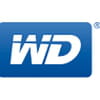External hard drive problem
Closed
siv
-
Jan 14, 2015 at 01:21 AM
KY_WD Posts 2053 Registration date Thursday October 23, 2014 Status Member Last seen February 28, 2017 - Jan 14, 2015 at 02:56 AM
KY_WD Posts 2053 Registration date Thursday October 23, 2014 Status Member Last seen February 28, 2017 - Jan 14, 2015 at 02:56 AM
Related:
- External hard drive problem
- Hard drive diagram - Guide
- How to install a new hard drive - Guide
- Hard drive regenerator - Download - Backup and recovery
- Seagate external hard drive not showing up - Hard Drive & SSD Forum
- Toshiba external hard drive blue light - Hard Drive & SSD Forum
1 response

KY_WD
Posts
2053
Registration date
Thursday October 23, 2014
Status
Member
Last seen
February 28, 2017
122
Jan 14, 2015 at 02:56 AM
Jan 14, 2015 at 02:56 AM
Hello siv,
There are a number of potential causes for I/O device errors on computers that run the Windows Operating System (OS).
The issue might be caused by: outdated or corrupt driver installation for the affected hard drive; the operating system using an incompatible transfer mode for the HDD I/O error or faulty or loose connection to the hard drive.
Make certain that all cables are connected correctly. Make sure that the cable that connects the computer to the drive is functioning correctly. If the cable fails, the drive will not work correctly. If you have another cable, try to use it, and also try to attach it to another (USB) port.
You can check the status of the drive in Device Manager to ensure that the device driver is working properly. If there is a hardware problem or a software conflict, preventing the device from working properly, usually Device Manager will identify the problem. Try to download the latest version of the driver.
Also, you could try to perform a clean boot of your computer to determine whether a program or driver is having a conflict with the drive. If a clean boot fixes the problem, there may an incompatible program or driver on your PC.
If nothing of this helps and your external hdd is still under warranty you should consider RMA.
Hope that I helped.
KY_WD
There are a number of potential causes for I/O device errors on computers that run the Windows Operating System (OS).
The issue might be caused by: outdated or corrupt driver installation for the affected hard drive; the operating system using an incompatible transfer mode for the HDD I/O error or faulty or loose connection to the hard drive.
Make certain that all cables are connected correctly. Make sure that the cable that connects the computer to the drive is functioning correctly. If the cable fails, the drive will not work correctly. If you have another cable, try to use it, and also try to attach it to another (USB) port.
You can check the status of the drive in Device Manager to ensure that the device driver is working properly. If there is a hardware problem or a software conflict, preventing the device from working properly, usually Device Manager will identify the problem. Try to download the latest version of the driver.
Also, you could try to perform a clean boot of your computer to determine whether a program or driver is having a conflict with the drive. If a clean boot fixes the problem, there may an incompatible program or driver on your PC.
If nothing of this helps and your external hdd is still under warranty you should consider RMA.
Hope that I helped.
KY_WD

